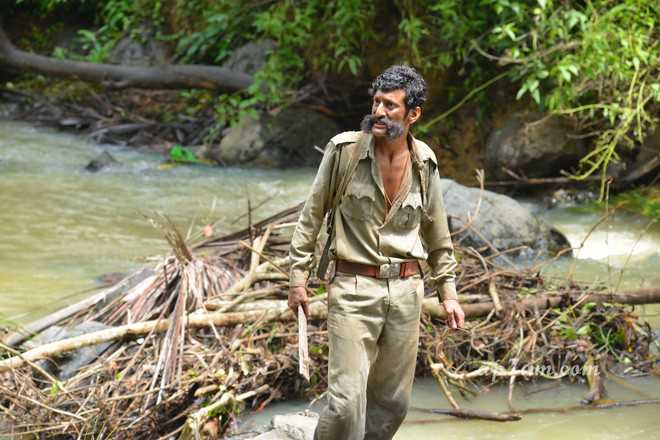
Sandeep Dikshit
To put a north Indian perspective to Veerappan’s notoriety, the price tag on his head was higher than that on Gurbachan Singh Manochahal, the dreaded militant whose gun commanded compliance in Punjab’s Majha area for a decade. In comparison, Veerappan’s writ ran over an area three times larger and for double the time frame. At times, chief ministers of Karnataka and Tamil Nadu would rush to confabulate with each other or, during the brigand’s heydays, even talked to him counselling restraint.
As thrillers go, the story plays out on two planes. One the current, circa 2001, after the author and police officer K. Vijay Kumar takes over as the chief of the Special Task Force to hunt down Veerappan. Simultaneously, police officers narrate the back-story of the smuggler’s depredations in the 1990s to Vijay Kumar as he tours the same spots where the abundantly moustachioed and rangy Veerappan would cause even the most hardened killer cop to freeze in terror. Both narratives merge at the encounter where the might of the state ensured that a broken and ill Veerappan did not emerge alive.
The man had started out as many do in a part of the world that is composed of little else but jungles, rivers, swamps, mountains and crevasses. There were few opportunities for an honest living but the long chain of reserved forests spanning three states teem with marketable natural resources of sandalwood, granite and elephant tusks. Since the trade in any of the three is illegal, Veerappan, at 14, automatically fell on the wrong side of the law when he joined his uncle in elephant poaching.
The core team to hunt down Veerappan took shape after police officials were targeted. The team’s kernel was men well versed in the grammar of violence; men whose sole mission is to ensure the writ of the state. Just about a decade back they had stormed the countryside of Dharmapuri and Vellore in a three-year spell of intimidation and disappearances that crushed Naxalism.
The point of no return may have been in 1991 when Veerappan shot dead a forest officer who he thought was having an affair with his sister resulting in her committing suicide. Or when he stormed a police station to avenge his aide’s killing that the author believes was a “mystery” while the locals were convinced it was yet another convenient encounter killing.
The novel takes us through the many dramas that made it to the front pages of the newspapers — the kidnapping of a Kannada superstar, the many trips a magazine editor made to the jungles to meet Veerappan — or the several that never made it like the elaborate ploy to position his wife as a bait, the tribal who got so plastered on informant’s money that he forgot to alert the STF about Veerappan and the near-misses where a trail of blood was the only indication that the brigand had escaped yet again. The STF veterans of leech bites had learnt to sense the signals from the rustle of leaves, the break of the twigs or the ripple of the river. To their trained eye, blood also gave its own clues: if frothy, it was from the lungs, heavy and slimy from the head, if gelatin-like, from the abdomen and steady, normal from the torso.
But a police officer can only tell a part of the story, however gripping. It does not come close to explaining why hundreds of policemen with fresh legs replacing the exhausted lot could not capture the man during the prime of his life? Did it have to do with the latent sympathy the people living in the forest range had with the man who shared their destiny? Would the police still be tramping in the forested highlands had advancing age and introduction of technology not tilted the scales against Veerappan?
Like Manochahal, Veerappan was denied a crossover into politics. The attempts to highlight Tamil radical causes came too late in the day. Veerappan had the blood of too many policemen on his hands to be allowed redemption.


























